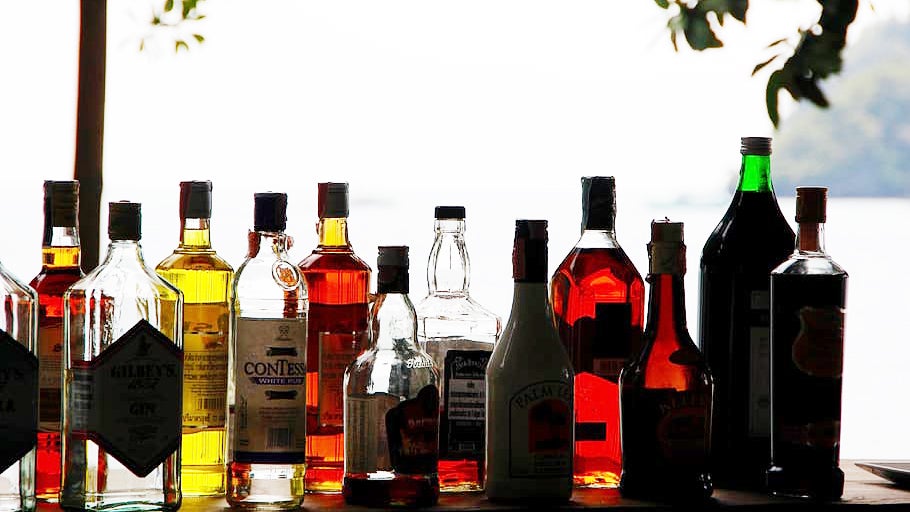You asked: Can I have wine or liquor delivered to me while sheltering in place?
Published 3:28 pm Monday, April 13, 2020
You asked: Can I have wine or liquor delivered to me while sheltering in place?
Answer: The short answer is no, you cannot if you live in Mississippi.
According to the Mississippi Department of Revenue Alcohol Beverage Control code, it is illegal to bring wine into Mississippi, and such products will be considered contraband. Mississippi’s statutes do not specify that liquor cannot be shipped into the state, but the prohibition against physically bringing these products into the state has been broadly understood to apply to shipments, as well. As a result, no company offering retail shipping of liquor products will ship to Mississippi for fear of penalties incurred by the existing laws.
Defining terms
To differentiate what is meant by an “alcoholic beverage,” as opposed to beer or wine, some definitions are helpful.
Beer — not considered an “alcoholic beverage” in Mississippi’s local option laws; no more than 8 percent alcohol by weight — anything greater is illegal in the state; wine-based products with alcohol content less than 5 percent are regulated like beer and called “light wine.”
Alcoholic beverages — a distilled spirit or wine product containing more than 5 percent alcohol by weight; products that are spirit-based and less than 5 percent by weight are not legal.
Beer and “light wine” cannot be sold in package stores. “Alcoholic beverages” cannot be sold in convenience or grocery stores.
A note about the legal drinking age
A person must be 21 years old or older in order to legally drink beer, wine or alcoholic beverages. However, a person 18-21 years old may consume beer with the consent of his or her parent or legal guardian if in the presence of that parent or guardian. This exception does not include wine or hard liquor. A person at least 18 years old who is a member of the U.S. military may possess and consume beer on military property where or when beer consumption is permitted. In addition, a person must be at least 21 years old in order to purchase alcoholic beverages in the state — and must not be visibly intoxicated.
Contrary to popular belief, a child who is under the age of 21 may accompany a parent or guardian into a liquor store or bar if not prohibited by the owner of that store or bar, but cannot drink or purchase beverages containing alcohol.
Can I buy beer or alcoholic beverages in another state and bring them home?
The answer here is again, no. No person or business may bring any liquor or wine product into Mississippi. Only beer wholesalers with MDOR permits may bring in beer or light wine. Penalties for breaking the law include confiscation of the contraband items, monetary fines and possible jail time.
Can I make it myself?
Homemade beers or wines are legal, provided they are made for home use only and not sold. Beer volume is limited. A person may make up to 100 gallons if there is only one person of legal drinking age in the household, or 200 gallons if there are two or more persons over 21 in the household. The person making the beer must be at least 21 years of age and must live in a wet county or municipality.
Homemade wines must be made by fermentation and not involve distillation. Any alcoholic beverage made by distillation — such as whiskey, gin, rum and vodka — are illegal to manufacture in Mississippi without a permit.
How does a county or city become wet or dry?
Thirty-four of the state’s 82 counties are completely dry for hard liquor; thirty-six are dry for beer and light wine sales. Hinds and Chickasaw counties are “half” dry, because the county has two judicial districts, and each district can have an independent election. Several locations in dry areas of the state are legal for beer or liquor and wine sales due to legislative action.
Lincoln County is a dry county. Brookhaven is a wet municipality.
In order for a dry county to become a wet county for liquor and wine — or a wet county to become a dry county for the same — an election must be held. Upon receipt of a petition signed by 20 percent of the qualified electors of the county (or 1,500 people, whichever is less), the county’s board of supervisors must call an election for or against the legal sale of alcoholic beverages. Elections on this matter cannot be made in any county more than once every two years.
Unless provided specific authority by law, a municipality may not hold an independent election to come out from under prohibition. Local elections can be held, however, on whether beer can be sold in local communities. A vote on introducing or discontinuing sale of beer will be held within a county or within a municipality of at least 2,500 people upon receipt by the board of supervisors of a petition signed by 20 percent of the qualified electors of the county. These elections cannot be held in any one county or city more often than once every five years.
Purchase from local retailers
Even though you can’t have it delivered, local options are still available. Beer and light wine can still be purchased from any local retailer that sells those products and remains open for business. Liquors and wines can be purchased at one of the city’s package stores. Normal business hours for these stores is Monday through Saturday from 10 a.m. until 8 p.m., as defined by state law.
Newman’s Package Store on Hwy. 51 N and Brookway Wine & Spirits on Brookway Boulevard both remain open during normal business hours. Customers are permitted to enter the store, but curbside service is available upon request by calling ahead.
Be smart
Regardless of where it is legal to purchase or receive alcoholic beverages, laws will continue to be enforced regarding drinking and driving, as well as other applicable laws.
Brookhaven city ordinance states it is unlawful for a person to have an open container in his or her possession within the municipal boundaries of the city. According to the ordinance, it is unlawful to possess an open container on public property, including buildings, parking lots, sidewalks, streets and parks unless specifically approved. It is also unlawful within a motor vehicle, regardless of whether the person in possession is an operator or a passenger of the motor vehicle.
Because Lincoln County is dry, however, a person can be charged with possession of beer or liquor outside the city limits of Brookhaven.
For more information on Mississippi or local ordinances, visit www.dor.ms.gov or brookhaven-ms.gov.






